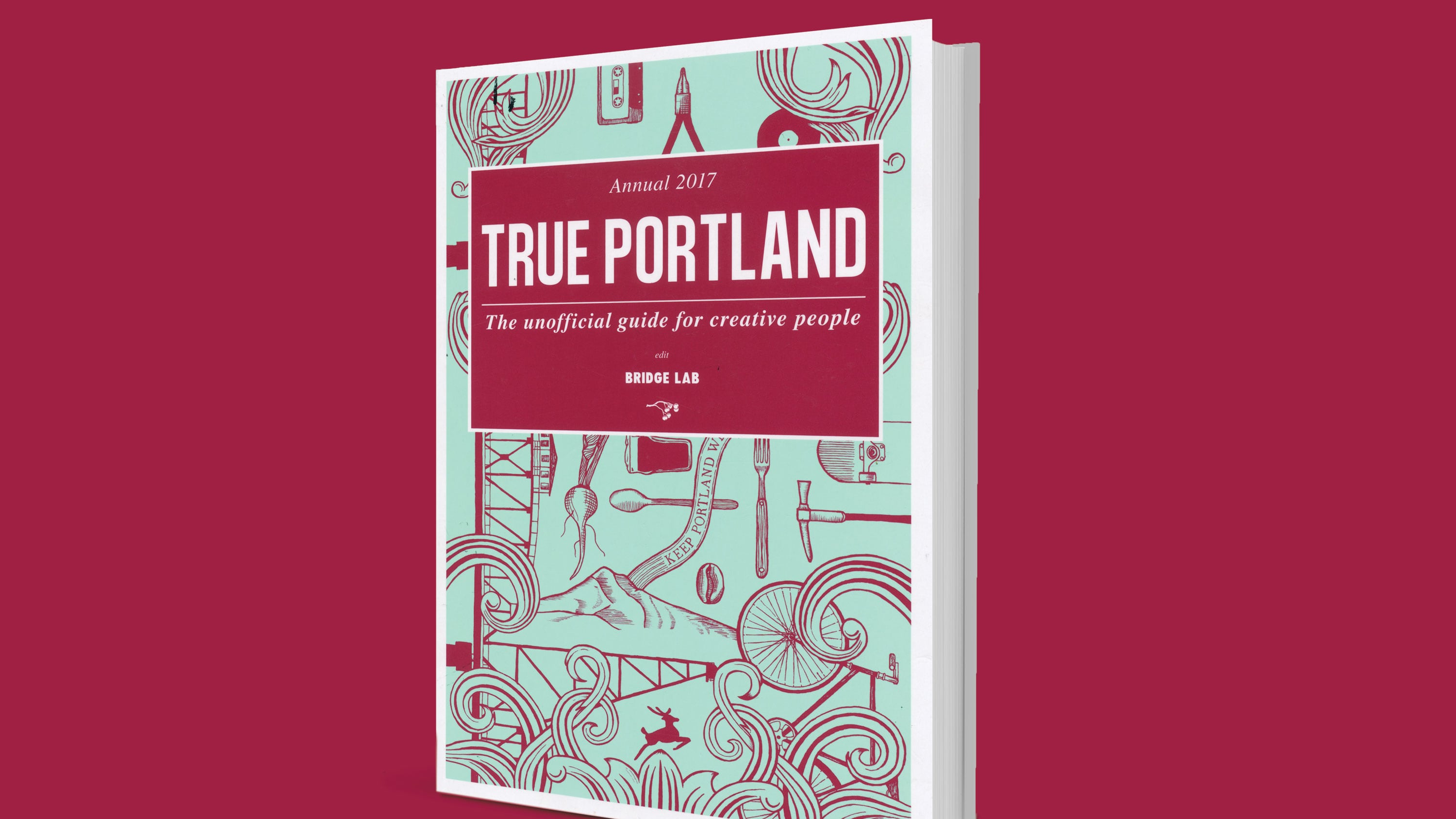If Japan seems to love Portland, one of the biggest reasons is Teruo Kurosaki. The Tokyo-based designer, curator and arts-world figure began visiting our city in 1985 to see his brother Toshio, a developer here in town. Over decades, Kurosaki fell in love with what he saw as a different vision of the world, and he brought what he found back to Tokyo.
Related: We Went To Tokyo To Figure Out Why They're Obsessed With Our City
The first edition of his 2014 guide to our city, True Portland, became the best-selling guide of any kind on Amazon Japan, and was at the forefront of a Japanese travel boom to Portland that's been obvious to anyone hanging out in the Pearl District.

Now True Portland is coming out in English (Hawthorne Books, 303 pages, $24.95), offering a rare opportunity—invaluable for a city whose favorite hobby is gazing into our own navels—to see what another culture has made of us. The book digs deep into underground cool-kid spots still unknown to many in Portland—Hoodoo Antiques in Old Town, Solabee Flowers on Killingsworth—in part because of the authors' extensive network of connections throughout the city, whether Departure's Gregory Gourdet or the staff of the Ace Hotel.
Kurosaki and one of the books' editors, Akihiro Matsui, will be in Portland this Thursday launching the English translation of True Portland at Reverend Nat's Hard Cider. We talked them in advance about gentrification, the dreams of hippies and breathing the free Portland air.
WW: Tokyo is an older and much more cosmopolitan city than ours—why is Portland interesting? Why not New York or L.A.?
Teruo Kurosaki: It has an indie kind of feeling, you know—the hippie generation. In America, the most important thing is the dream of the hippie generation, from the '60s to the '90s, like 1968 Haight-Ashbury in San Francisco. I saw that happen around the world, but I saw a really good result in Portland. Portland can have a different attitude to life and nature. In Japan, this has been denied: We have become really normal and standard, like a German society. But people looking to chase their dreams? I can find that in Portland.
Akihiro Matsui: Portland has something we don't really have. We have 13 million people, but we don't have craft DIY culture—or we didn't until the past 10 years, craft beer and tattoos and all those things. We always get inspired by something we don't have.
A lot of people here think Portland has been ruined by money.
Kurosaki: Still compared to other cities, you have a sense of beauty. The attitude to life is really Portland. Portland is way of thinking or of acting, a lifestyle. Everything there has a special meaning to me. It's still OK. In these seven, eight years it's become a little bit more normal, or a little bit commercialized from too much appreciation. But Portland still has unique points.
Matsui: People say Portland is gentrified, it's getting more expensive to live and it pushes people to move away. But Portland attracts Japanese. It's hard to put into words. It's a combination of things.
Why translate True Portland into English?
Kurosaki: Many American people have asked us to put it in English. That's why. Of course, we changed it for these people, who are maybe Portlanders. It will make a different impression on an American audience.
Matsui: I'd been living in Europe for a few years, and then I started to realize Tokyo is amazing. There are things you can find out or see only when you have a distance. The point of us doing True Portland [in English], it's something like that. Someone who lives outside the city can have a fresh perspective. We are outsiders—Japanese—who made a book about Portland, Oregon.
What's the first place you tell someone from Tokyo to visit in Portland?
Matsui: Powell's. I tell them to first go to Powell's. The important thing is you walk around and find something you like. Being in the city is more important than the information. I tell them to go to Powell's and find books, and start from there.
Kurosaki: There's no specific place. Just breathe the air of Portland, just get the feeling of the trees in Portland, the independent lifestyle. Portland has been establishing its own culture, different from Seattle or San Francisco. It's more carefree, you can go out in the wild, eat the food, take a bicycle.
I was asked by many Japanese people: Where should we visit in Portland? I say, "Oh, you just walk around." Go to any coffee shop. Not some fancy hotel, or the Ace Hotel. Anyplace, you can feel that. Open up your eyes and feel the five senses more sharply. That's what I say to those people.
What do you want to visit next when you're here?
Kurosaki: The new hotel has been opened, the Hi-Lo. I'm meeting [former Wieden+Kennedy creative director] John Jay next week, and he's suggested a few places. Every day in Portland almost, a new restaurant is opening. There are always new people, new things happening all the time in Portland. I just want to keep on going there. That's my goal now.
Kurosaki and Matsui will attend the True Portland Launch Party Thursday, June 22, at Reverend Nat's Hard Cider, 1813 NE 2nd Ave. There will be a Japanese-PDX marketplace, a Japanese collaboration beer from Portland's Culmination Brewing, and cider made with Japanese apples. 6-10 pm. Free. 21+.
